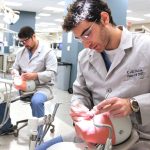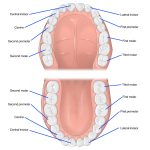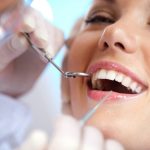Brace Yourself: The Consequences of Not Brushing Teeth with Braces
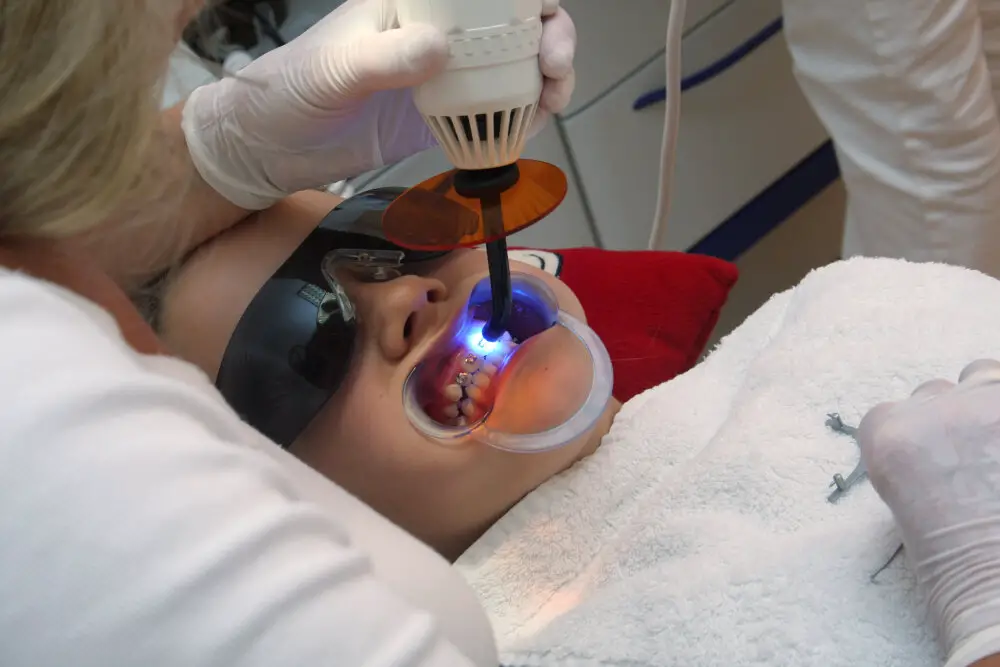
Braces are a common orthodontic treatment used to correct crooked teeth, misaligned bites, and other dental problems. Although braces are highly effective in straightening teeth and improving oral health, they require extra care and attention when it comes to oral hygiene. Neglecting to brush teeth properly when wearing braces can lead to a host of dental problems, ranging from bad breath to tooth decay and gum disease. The American Association of Orthodontists recommends that patients with braces brush their teeth at least twice a day, using a fluoride toothpaste and a soft-bristled brush. Flossing is also critical, as it helps remove food particles and plaque from hard-to-reach areas between teeth and braces. Despite these recommendations, many people fail to take proper care of their teeth while wearing braces, leading to serious oral health consequences. In this article, we’ll explore the risks of not brushing teeth with braces and offer practical tips for maintaining good oral hygiene during orthodontic treatment.
Braces are orthodontic devices made of metal or ceramic brackets that are attached to the teeth and connected by wires, bands, or elastics. Their primary purpose is to correct malocclusions or misaligned teeth by applying gentle pressure to move them into their proper positions. Braces can also help improve the bite, enhance facial appearance, and prevent dental problems such as tooth decay, gum disease, and jaw disorders. However, wearing braces requires extra care and attention to oral hygiene, as food particles and bacteria can get trapped in the brackets and wires, leading to plaque buildup, bad breath, and tooth discoloration. Therefore, it is essential to brush and floss regularly, avoid hard and sticky foods, and visit the orthodontist for regular check-ups and adjustments. By following these guidelines, patients can achieve a healthy and beautiful smile and avoid the consequences of not brushing teeth with braces.
Maintaining good oral hygiene is crucial when wearing braces to prevent dental problems such as cavities, gum disease, and bad breath. Braces create tight spaces between the teeth, which can trap food particles and plaque, leading to bacterial growth. If left unchecked, this can cause tooth decay and gum disease. Brushing and flossing regularly, using an interdental brush, and rinsing with fluoride mouthwash can help keep teeth clean and healthy while wearing braces. Neglecting oral hygiene can result in not only dental problems but also prolonged treatment time and potentially costly repairs. Therefore, it is essential to brace yourself with a good oral hygiene routine while wearing braces to maintain a healthy smile.
Tooth Decay
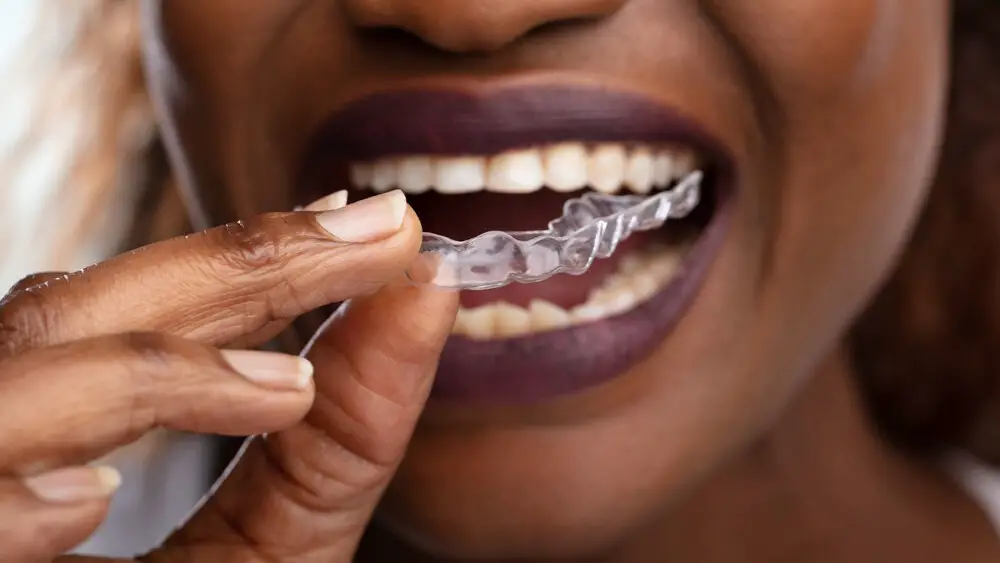
Tooth decay is a common dental problem that occurs when the enamel of the tooth starts to break down due to the accumulation of bacteria. The bacteria feed on the sugars and carbohydrates in the food we eat, producing an acid that can erode the enamel over time. If left untreated, tooth decay can lead to cavities, gum disease, and even tooth loss. In individuals with braces, tooth decay can be even more of a concern, as the brackets and wires create additional spaces for bacteria to hide and thrive. Therefore, it is essential to maintain good oral hygiene habits, such as brushing and flossing regularly, to prevent tooth decay and other dental problems. One of the most significant concerns with tooth decay is that it can be difficult to detect in its early stages. Many people do not experience any pain or discomfort until the decay has progressed to a more advanced stage, making it harder to treat. This is why regular dental check-ups are so important, as dentists can identify early signs of decay and provide treatment before it becomes more serious. With braces, it can be even more challenging to detect tooth decay, as the brackets and wires can obscure the view of the teeth. Therefore, it is crucial to maintain good oral hygiene habits and visit the dentist regularly to ensure that any potential issues are identified and addressed promptly.
Braces, although necessary for a healthy and attractive smile, can contribute to tooth decay if proper oral hygiene is not maintained. The brackets, wires, and rubber bands of braces can trap food particles and create hard-to-reach areas that are difficult to clean with regular brushing and flossing. The accumulation of food debris and bacteria can lead to the formation of plaque, which can erode the enamel of teeth and cause cavities. Additionally, braces can make it challenging to brush and floss thoroughly, especially around the brackets and wires. Therefore, it is essential to maintain a strict oral hygiene routine while wearing braces, including brushing twice a day, flossing daily, and using a water flosser to remove food particles and plaque.
Wearing braces is a great way to straighten your teeth and improve your smile, but it can also make it harder to keep your teeth clean. To prevent tooth decay while wearing braces, it’s important to brush your teeth at least twice a day with fluoride toothpaste and floss daily. You should also avoid sugary and acidic foods and drinks, as they can contribute to tooth decay. Additionally, using an interdental brush or water flosser can help clean hard-to-reach areas between your teeth and braces. Regular dental check-ups and cleanings are also crucial to maintaining good oral health while wearing braces. By following these tips, you can keep your teeth healthy and strong throughout your orthodontic treatment.
Gum Disease

Gum disease, also known as periodontal disease, is a serious oral health condition that affects the gums and bones that support the teeth. It is caused by the buildup of bacteria and plaque on the teeth and gums, which can lead to inflammation, bleeding, and eventually tooth loss. Gum disease is a common problem among people who wear braces, as the brackets and wires can make it difficult to clean the teeth and gums properly. If left untreated, gum disease can cause significant damage to the teeth and gums, and even lead to serious health problems such as heart disease and stroke. There are several signs and symptoms of gum disease that you should be aware of, including red, swollen, or bleeding gums, bad breath, loose teeth, and a receding gum line. If you notice any of these symptoms, it is important to see a dentist or orthodontist as soon as possible. Treatment for gum disease typically involves a deep cleaning of the teeth and gums, as well as the use of antibiotics or other medications to help control the infection. In severe cases, surgery may be necessary to remove damaged tissue and restore the health of the gums and teeth. By taking good care of your teeth and gums while wearing braces, you can help prevent gum disease and other oral health problems from occurring.
Braces are an effective way to straighten teeth and improve a person’s smile. However, wearing braces can also increase the risk of developing gum disease. Braces create more areas for plaque and food particles to accumulate, making it difficult to properly clean teeth and gums. If not cleaned properly, the bacteria in plaque can irritate the gums, causing inflammation and eventually leading to gum disease. This is why it is important for individuals with braces to be vigilant about their oral hygiene, brushing and flossing regularly, and visiting their dentist for checkups and cleanings. Neglecting proper oral hygiene can lead to serious consequences and potentially harm the overall health of a person’s mouth.
Wearing braces requires extra attention to oral hygiene in order to prevent gum disease. One of the most important tips is to brush your teeth after every meal and snack, using a soft-bristled toothbrush and fluoride toothpaste. Flossing daily is also crucial, but it can be challenging with braces. Special orthodontic floss or a floss threader can help make the process easier. In addition, avoiding sugary and starchy foods can help prevent plaque from building up and causing gum problems. Regular dental check-ups and cleanings are also important to maintain good oral health while undergoing orthodontic treatment. By following these tips, you can keep your gums healthy and avoid the negative consequences of not brushing teeth while wearing braces.
Bad Breath

Bad breath, also known as halitosis, is a common problem that affects millions of people worldwide. It is characterized by an unpleasant odor that emanates from the mouth, which can be caused by a variety of factors, including poor oral hygiene, certain foods, and medical conditions. For those with braces, bad breath can be even more of a concern, as the brackets and wires can trap food particles and bacteria, leading to a buildup of plaque and tartar. This can result in an increase in the number of bacteria in the mouth, which can cause bad breath. To combat this issue, it is essential to practice good oral hygiene, such as brushing and flossing regularly and using an antibacterial mouthwash. Additionally, avoiding certain foods that are known to cause bad breath, such as garlic and onions, can also be helpful. Ignoring bad breath can have serious consequences, as it can lead to social and psychological problems. Individuals with bad breath may be perceived as unhygienic or unapproachable, which can affect their personal and professional relationships. Additionally, bad breath can be a sign of an underlying health issue, such as gum disease or an infection, which, if left untreated, can lead to more severe health problems. Therefore, it is vital to address bad breath as soon as possible and seek professional help if necessary. By taking care of your oral health and addressing bad breath, you can maintain fresh breath and ensure your overall well-being.
Braces are an orthodontic device used to straighten teeth and improve the overall alignment of the jaw. However, they can also contribute to bad breath if not properly cared for. Braces have many nooks and crannies that can trap food particles, bacteria, and plaque. If these particles are not removed, they can cause bad breath. Additionally, braces can make it more difficult to clean teeth and gums, leading to an increase in bacteria and a subsequent increase in bad breath. Therefore, it is important to maintain good oral hygiene habits when wearing braces, including brushing and flossing regularly and using an antibacterial mouthwash to combat bad breath.
Wearing braces can make it difficult to clean your teeth properly, which can lead to bad breath and other dental problems. However, there are several tips you can follow to prevent bad breath while wearing braces. First, make sure to brush your teeth thoroughly after every meal, using a toothbrush with soft bristles and a fluoride toothpaste. You should also floss at least once a day to remove food particles and plaque from between your teeth and braces. Additionally, consider using an antibacterial mouthwash to kill bacteria that can cause bad breath. Finally, avoid eating foods that are high in sugar or starch, which can lead to increased plaque and bad breath. By following these tips, you can keep your breath fresh and your teeth healthy while wearing braces.
Stained Teeth
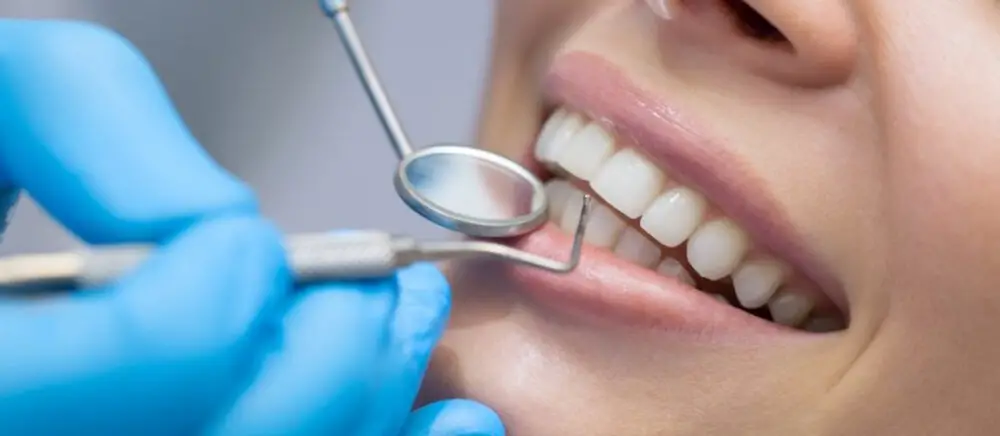
Stained teeth are one of the consequences of not brushing teeth with braces. This happens when food particles and bacteria get trapped in the brackets and wires of the braces, leading to the formation of plaque. Plaque, if not removed, can harden into tartar, which can cause permanent staining of the teeth. This staining can be unsightly and difficult to remove, even with professional cleaning. Moreover, it can also lead to bad breath and other dental problems. To prevent stained teeth, it is essential to practice good oral hygiene habits while wearing braces. This includes brushing at least twice a day and flossing daily to remove food particles and plaque from between the teeth and braces. It is also important to avoid consuming foods and drinks that can stain the teeth, such as coffee, tea, soda, and red wine. If you do consume these beverages, it is best to rinse your mouth with water afterwards to help reduce the risk of staining. By taking these steps, you can keep your teeth healthy and clean while wearing braces, and avoid the unsightly and embarrassing consequences of stained teeth.
Braces, while effective in straightening teeth, can also contribute to stained teeth if proper oral hygiene is not maintained. The brackets and wires of the braces can make it difficult to reach all areas of the teeth with a toothbrush, allowing plaque and bacteria to accumulate and eventually lead to discoloration. Additionally, food particles can become trapped in the braces, further increasing the risk of staining. Without regular brushing and flossing, these stains can become stubborn and difficult to remove, requiring professional treatment to restore the teeth to their natural color. Therefore, it is crucial for those with braces to practice good oral hygiene to prevent staining and maintain a healthy smile.
Wearing braces can be a challenging task, and it’s essential to take good care of your dental hygiene to prevent stains on your teeth. Firstly, it’s crucial to brush your teeth thoroughly after every meal, taking special care to clean the areas around the brackets and wires. Flossing should also be a daily habit, as it helps to remove plaque and food particles that may cause discoloration. Avoiding sugary and acidic foods and beverages can also help to minimize staining, as they tend to stick to braces and increase the risk of decay. Additionally, using mouthwash can be an effective way to prevent bacteria growth and keep your mouth fresh. By following these simple tips, you can maintain healthy teeth and a bright smile while wearing braces.
Oral hygiene is crucial for maintaining healthy teeth and gums, but it becomes even more important when braces are involved. Braces create small spaces between teeth and wires where food particles and plaque can easily accumulate, leading to tooth decay, gum disease, and bad breath. Neglecting oral hygiene with braces can also stain or discolor teeth and cause demineralization, which weakens tooth enamel and leads to white spots or even cavities. To avoid these consequences, it’s essential to brush and floss regularly, use a fluoride rinse, and maintain a healthy diet. By taking proper care of your teeth and braces, you can ensure a healthy and beautiful smile for years to come.
Braces can be a life-changing experience, but it’s essential not to forget about your oral hygiene while wearing them. Neglecting your teeth while wearing braces can lead to severe consequences such as tooth decay, gum disease, and bad breath. It’s important to brush and floss regularly, paying extra attention to the areas around the brackets and wires. Additionally, limiting sugary and starchy foods can help to reduce the risk of plaque buildup. Taking care of your teeth while wearing braces may require extra effort, but the results will be worth it in the end – a beautiful, healthy smile that you can be proud of!
Conclusion
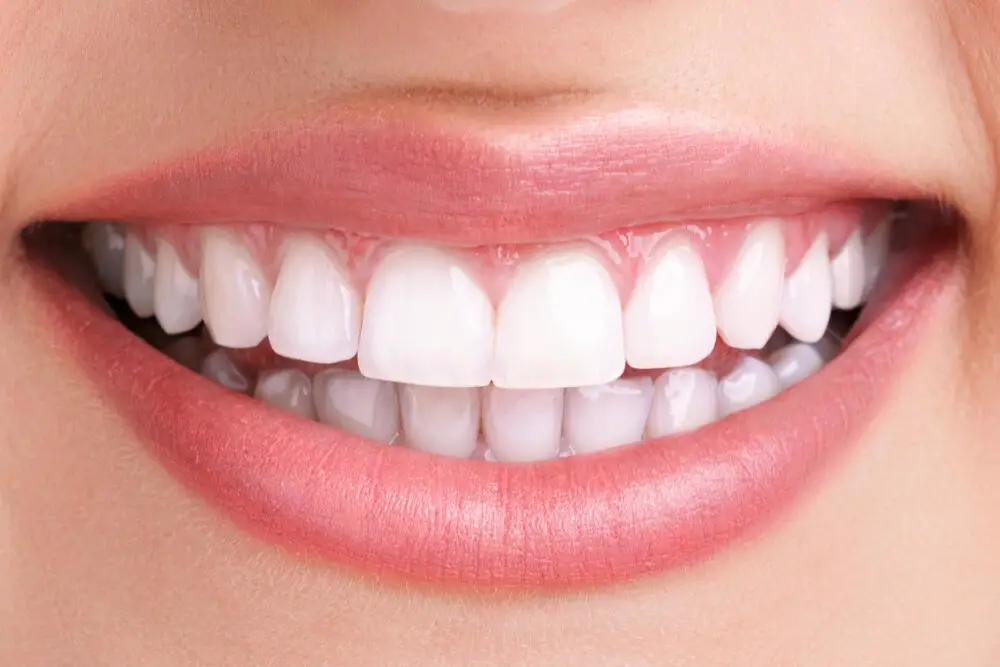
In conclusion, neglecting oral hygiene while wearing braces can lead to a myriad of negative consequences. From bad breath and tooth decay to gum disease and even tooth loss, the repercussions can be severe and long-lasting. It is essential to adopt a thorough oral care routine that includes brushing, flossing, and using mouthwash regularly. Additionally, avoiding sugary and acidic foods and drinks can help prevent plaque buildup and enamel erosion. Taking care of your teeth and braces may require some extra effort, but the benefits of a healthy, beautiful smile are well worth it in the end. So, brace yourself and commit to maintaining good oral hygiene habits today!




